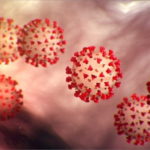 In keeping with the ever-changing guidelines during this pandemic, the newest recommendation is to continue to have well child checks for children 2 and under. This recommendation stems from the fact that these children are most at risk if not receiving vaccines in a timely manner. The recommendations state that older children should postpone their well check for the future.
In keeping with the ever-changing guidelines during this pandemic, the newest recommendation is to continue to have well child checks for children 2 and under. This recommendation stems from the fact that these children are most at risk if not receiving vaccines in a timely manner. The recommendations state that older children should postpone their well check for the future.
The doctors at Doctors Pediatric feel strongly that this is the correct guidance to keep everyone as safe as possible. We are, however, equally concerned that we are going to miss some important health concerns for children over 2 years of age. Considering that the well child visit could be put off by several months, we are encouraging families to set up a Televisit to discuss pertinent issues. If nothing else, it will give the doctors a chance to ask some general health and mental health questions to make sure that we are not overlooking any preexisting or blooming problems.
Please call the front desk and reach out to us so that we may do an interim Televisit to make sure that your child is healthy and emotionally well. If you already have a well visit that we are postponing, we can honor that time slot with a Televisit.
STAY WELL AND STAY SAFE!



 Drowning vs. Dry Drowning
Drowning vs. Dry Drowning
